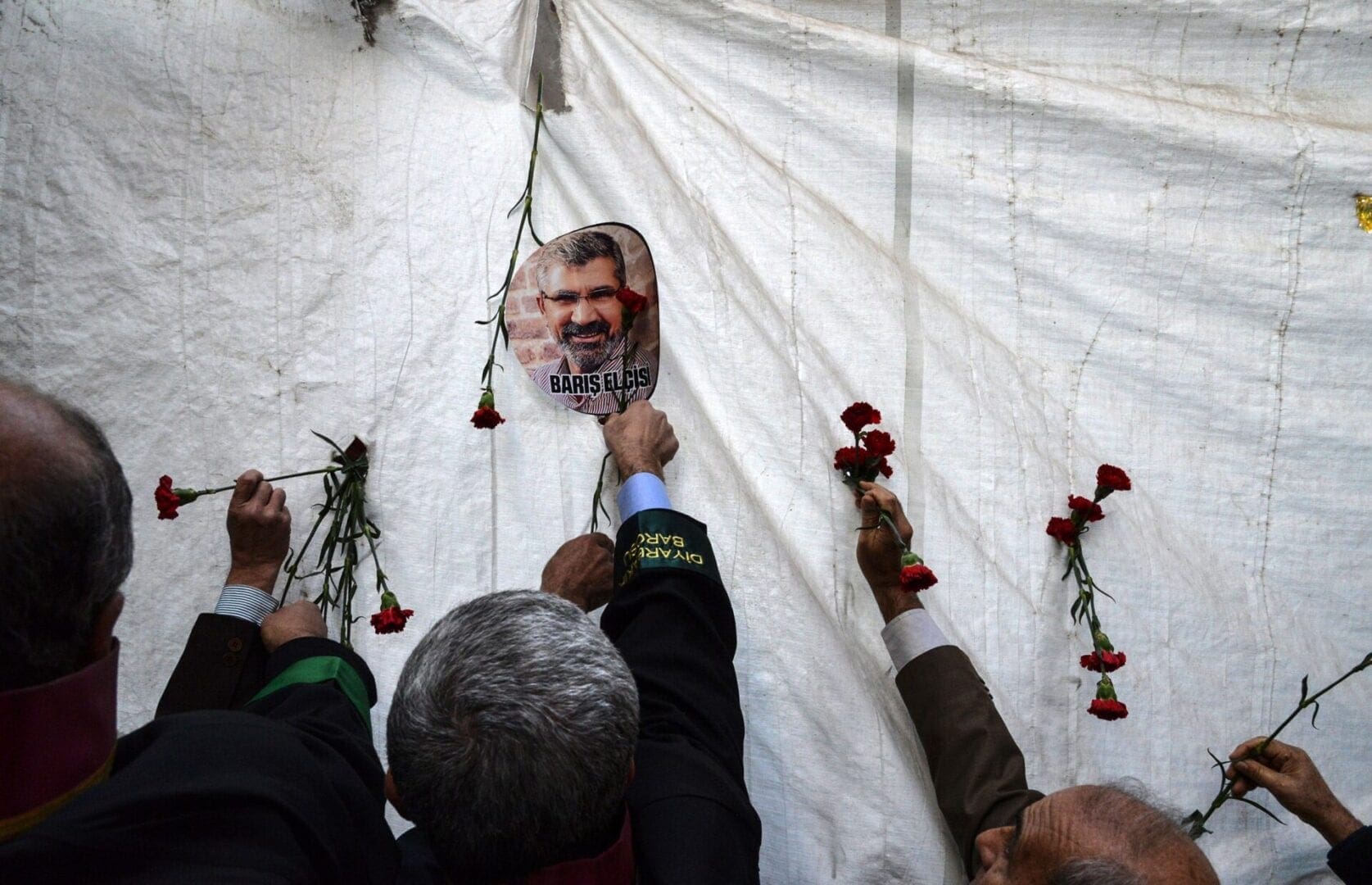The trial of three police officers accused of killing prominent human rights lawyer Tahir Elçi presents a long overdue chance for justice, Amnesty International said today. On November 28,2015, Tahir Elçi was shot in the head shortly after giving a statement at a press conference in the city of Diyarbakır, where the first trial hearing of three of the accused begins today.
A 2019 report by Forensic Architecture concluded, by a process of elimination, that Tahir Elçi was most likely killed by one of three police officers present at the scene. These officers face charges of ‘causing death by culpable negligence’, which carry a prison sentence of two to six years.
“Almost five years after the bullet that killed Tahir Elçi was fired, there is hope that the person who pulled the trigger will finally face justice. Tahir Elçi worked to help victims of human rights violations get justice, campaigning for an end to violence and respect for the rights of the Kurdish people,” said Milena Buyum, Amnesty International’s Turkey Campaigner.
“It is a bitter irony that Tahir Elçi’s life was cut short by the very violence he was campaigning to end. Justice for Tahir Elçi would be a glimmer of hope in a country where impunity is sadly endemic.”
In the weeks preceding Tahir Elçi’s brutal killing, he had been vilified and detained and a bogus prosecution was opened against him. He also received multiple death threats which he openly spoke about, but the authorities did not put in place any measures to protect him.
This campaign of intimidation followed comments he made during a TV program in which he stated that the Kurdistan Workers’ Party (PKK) was not a terrorist organization but an armed political movement with popular support. Just before his murder Tahir Elçi had told the press: “We don’t want guns here, clashes, or [police] operations”.
Türkan Elçi, Tahir Elçi’s widow said “A gaping wound has opened in society’s consciousness when a lawyer who believed in the struggle against war and violence was gunned down in full view of everyone. Although the prosecution has been delayed by five years, we remain hopeful that justice will be done. We have not given up on our belief in the law.”
BACKGROUND
The first hearing in the trial of three police officers and an alleged PKK militant is starting on October 21 at the Diyarbakir Heavy Penal Court No 10.
Amnesty International Turkey will be present to observe the start of the long-awaited trial, along with dozens of human rights lawyers, activists and others.
In 2015, Diyarbakır’s iconic four-legged minaret was damaged during armed clashes between the Turkish security forces and members of the armed PKK. Two days, Tahir Elçi spoke at a press conference at the site, calling for an end to the violence. As the press conference ended, police officers present at the scene fired at two suspected members of the armed PKK, who were running down the street where Tahir Elçi was standing by the monument.
The investigation into his killing was flawed: the area was not secured immediately, and a thorough crime scene investigation was not carried out for almost four months. The police officers present at the time were only interviewed as witnesses.
At the time of his assassination, Tahir Elçi was the President of Diyarbakır Bar Association, which commissioned UK-based research organization Forensic Architecture to examine the case. Forensic Architecture’s report and the accompanying video are available here and were submitted to the prosecuting authorities in 2019, forming part of the indictment that was accepted in March 2020. It was after the authorities reviewed this evidence that the three police officers who had fired shots on the day were interviewed as suspects. They are now indicted in the prosecution.
Tahir Elçi represented families of victims of human rights violations at the hands of Turkish security force – including enforced disappearances and suspected unlawful killings by government agents. Over many years, he played a key role in representing victims of these crimes before domestic courts and the European Court of Human Rights, helped to establish scores of human rights organizations in Turkey, and worked closely with international human rights groups, including Amnesty International.
Media contact: [email protected]

